Purpose
The purpose of the Transfer Appeals Committee is to:
- Provide a review means for a student, transferring from one community college to another within the Connecticut system of community colleges, who believes the receiving college has not allowed adequate credit for a course or courses
- Provide an established procedure which shall ensure the fulfillment of Board of Regents policy regarding transfer of credit
Membership
The Transfer Appeals Committee will consist of a chairperson (the Academic Officer of the Community College system) and two members (deans selected from a pool of academic deans and deans of students).
Neither dean serving for a particular review shall be from either of the colleges involved in the appeal. The pool shall consist of four academic deans selected annually by the Council of Academic Deans and four deans of students selected annually by the Council of Deans of Students. No dean shall serve more than three consecutive years. After the initial selection of deans, the executive officer will hold a drawing to determine that initially four deans shall hold a two-year service period in order to assure accumulation of some experience by a portion of the available deans.
Procedure
- When a community college student transferring from one of the twelve community colleges to another concludes, after exhausting other means of review, that he or she is not being allowed sufficient credit for a course or courses he or she wishes transferred, the student may use this procedure as a final review and decision.
- Before invoking this procedure the student shall have:
- appealed the decision of the evaluator of transfer credit at the receiving college to the appropriate dean at the college, and if dissatisfied with the decision then
- made an appeal of the decision of the dean to the president of the receiving college.
- If the student receives an unsatisfactory decision at the college level, he or she may then appeal the decision of the president to the Academic Officer for the Community Colleges who shall convene the Transfer Appeals Committee for purposes of considering the appeal.
- The Transfer Appeals Committee shall make a recommendation to the executive officer who shall render a final decision.
- When a tie vote occurs by the two deans, the chair of the Transfer Appeals Committee shall break the tie by casting a vote.>
- A report shall be made to the Academic Policies Committee of the Board in the case of such appeals reviewed and acted upon by the Transfer Appeals Committee and the executive officer.
Experiential Learning Credits
In this area, the College awards credit for learning or competency acquired through non-collegiate experience when that competency is equivalent to courses which the College offers. This is consonant with board policy on non-traditional learning. The student may apply for credit under one or more of the following procedures, given in the preferred order of selection:
- Credit by examination
- Credit for programs by non-collegiate organizations
- credits for life experience in lieu of:
field work requirements, or cooperative work experience requirements
Credit by Exam
College Level Examination Program (CLEP)
This testing program, administered by the College Entrance Examination Board, is designed to measure college level learning acquired outside the college classroom. Two types of CLEP examinations are offered:
- The General Examinations provide a comprehensive measure of undergraduate achievement in five basic areas of liberal arts education: English Composition, Humanities, Mathematics, Natural Sciences, and Social Science/History.
- The Subject Examinations measure achievement in specified undergraduate courses. These tests measure the understanding of fundamental facts and concepts, as well as the ability to apply such understanding to the solution of problems and the interpretation of materials.
For additional information, contact the office of the Dean of Students.
American College Testing Proficiency Examinations (PEP)
The ACT Proficiency Examination Program consists of 47 examinations designed for the recognition of learning acquired outside the classroom. The PEP examinations are developed under the auspices of the Regents of the State University of New York and are used to fulfill degree requirements of the Regents External Degree Program.
PEP Examinations are available in the areas of arts and sciences, business, criminal justice, education, health and nursing. Each examination is designed to measure knowledge and competencies a person might gain in non-traditional ways.
For additional information, contact the office of the Dean of Students.
Military Subject Standardized Tests (SSTs)
The Office on Education Credit of the American Council on Education (ACE) evaluates USAFI and DANTES military subject standardized tests and makes academic credit recommendations as an advisory service to those interested in applying for or granting credit for educational tests taken in the armed services. These college-level exams, offered only to military personnel, show general educational development. MxCC will grant degree or certificate credits for equivalent courses or electives based on ACE recommendations.
For additional information, contact the Admissions Office.
Advanced Placement Program (APP)
The Advanced Placement Program of the College Entrance Examination Board allows advanced high school students to take freshman-level courses in the latter days of their secondary schooling and receive credit for them in college. End-of-year Advanced Placement Examinations consist generally of two parts: objective and free response. Composite grades are assigned on a 5-point scale.
For further information contact the Admissions Office.
Challenge Examinations
At the discretion of the appropriate division chairperson and the Dean of Academic Affairs, a student may take a challenge examination in subject areas offered at MxCC not included in CLEP or PEP. The student must first apply to the dean and the division chairperson. If approved and a faculty member agrees to administer the exam, the instructor will prepare an examination that is presented to the department for approval. Upon such approval, the faculty member will administer the exam.
Credit will be granted with the grade of “Pass” only and will be treated in the same manner as transfer credit.
An Extension Fund Academic Evaluation Fee of $15.00, as approved by the Board of Regents, will be charged for preparation, administration, and evaluation of each challenge examination.
Credit for Prior Learning through Portfolio Development
Students who plan to apply for such credit must enroll in a four-credit course entitled SPT0 122: Special Topics–Portfolio Development. The student develops a portfolio in which he or she describes the learning acquired through prior experiences, specifies learning outcomes, provides appropriate documentation, and requests college credit for that learning. An assessment committee reviews and evaluates the portfolio and then determines how many credits the student should receive. The credits gained through this evaluation process are applicable towards an associate degree at MxCC.
No credit shall be awarded via portfolio review outside of the subject areas encompassed by the approved curricula of the institution. No more than 50 percent of the credits required for a degree can be satisfied with credits awarded for prior experiential learning. For additional information contact the Dean of Academic Affairs at 860-343-5866.
Criminal justice students employed in criminal justice occupations may, with permission of the coordinator of the Criminal Justice program, enroll in CJS*298 -Special Topics in Criminal Justice-Portfolio Development. This three credit course provides students with the opportunity to receive college level credit for life/work experience.
Credit for Programs or Courses Offered by Non-Collegiate Organizations
Military Service School Courses and Military Occupational Specialties
MxCC gives credit for military training, experiences, and military occupational specialty (MOS) qualifications. The College follows the credit recommendations in the “Guide to the Evaluation of Educational Experiences in the Armed Services” developed by the Office on Education Credit of the American Council on Education.
Credit Recommended by The National Guide to Credit Recommendations of Non-collegiate Courses
MxCC grants credit for courses listed in “The National Guide to Credit Recommendations for Non-collegiate Courses” published by the American Council of Education. The ACE guide reports credit recommendations for approximately 1,000 courses offered by 80 organizations nationally, including business and industry, labor unions, government agencies, and professional and voluntary associations. The recommendations are based on evaluations conducted as part of ACE’s Program on Non-collegiateSponsored Instruction by teams of faculty experts.
Credit Recommended by A Guide to Educational Programs in Non-collegiate Organizations
MxCC grants credit for courses listed in “A Guide to Educational Programs in Non-collegiate Organizations” published by the University of the State of New York Office on Non-collegiate Sponsored Instruction. (The Program on Non-collegiate Sponsored Instruction is conducted in New York State and other northeastern states by the State University of New York. The purpose of the program is to review formal educational programs and courses sponsored by non-collegiate organizations and to make appropriate credit recommendations. The 1977 edition of the Guide reports on 761 courses conducted by 67 organizations.)

